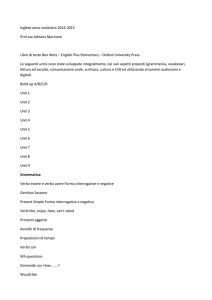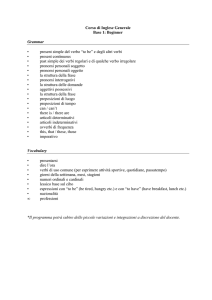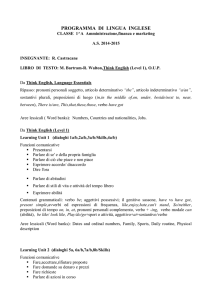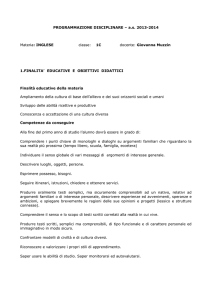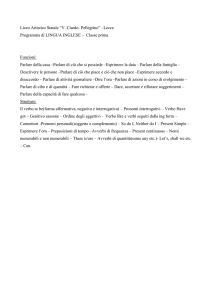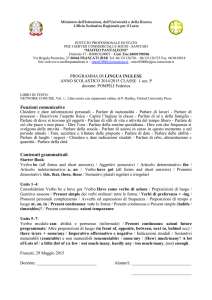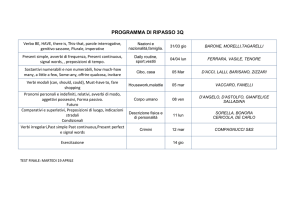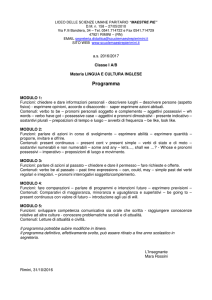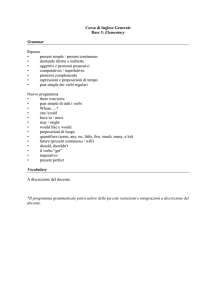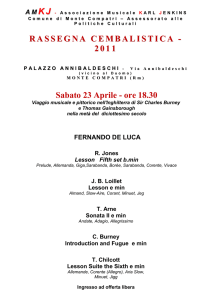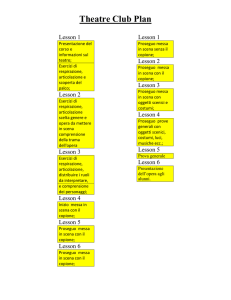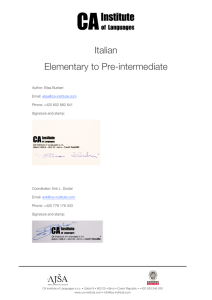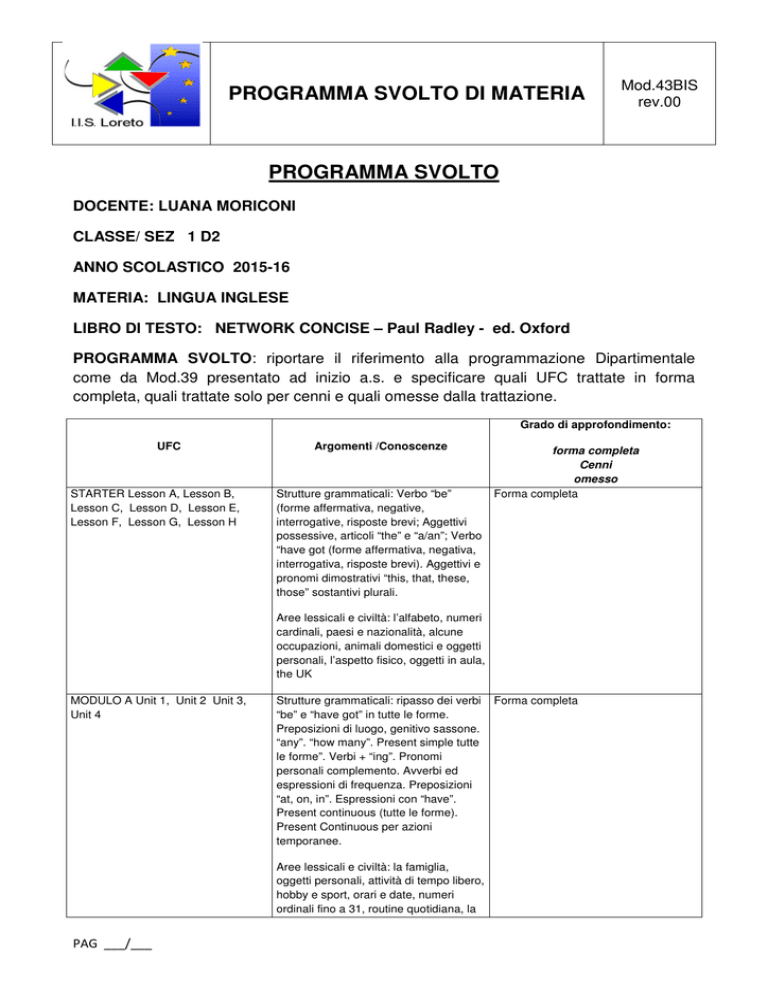
PROGRAMMA SVOLTO DI MATERIA
Mod.43BIS
rev.00
PROGRAMMA SVOLTO
DOCENTE: LUANA MORICONI
CLASSE/ SEZ 1 D2
ANNO SCOLASTICO 2015-16
MATERIA: LINGUA INGLESE
LIBRO DI TESTO: NETWORK CONCISE – Paul Radley - ed. Oxford
PROGRAMMA SVOLTO: riportare il riferimento alla programmazione Dipartimentale
come da Mod.39 presentato ad inizio a.s. e specificare quali UFC trattate in forma
completa, quali trattate solo per cenni e quali omesse dalla trattazione.
Grado di approfondimento:
UFC
STARTER Lesson A, Lesson B,
Lesson C, Lesson D, Lesson E,
Lesson F, Lesson G, Lesson H
Argomenti /Conoscenze
Strutture grammaticali: Verbo “be”
(forme affermativa, negative,
interrogative, risposte brevi; Aggettivi
possessive, articoli “the” e “a/an”; Verbo
“have got (forme affermativa, negativa,
interrogativa, risposte brevi). Aggettivi e
pronomi dimostrativi “this, that, these,
those” sostantivi plurali.
forma completa
Cenni
omesso
Forma completa
Aree lessicali e civiltà: l’alfabeto, numeri
cardinali, paesi e nazionalità, alcune
occupazioni, animali domestici e oggetti
personali, l’aspetto fisico, oggetti in aula,
the UK
MODULO A Unit 1, Unit 2 Unit 3,
Unit 4
Strutture grammaticali: ripasso dei verbi
“be” e “have got” in tutte le forme.
Preposizioni di luogo, genitivo sassone.
“any”. “how many”. Present simple tutte
le forme”. Verbi + “ing”. Pronomi
personali complemento. Avverbi ed
espressioni di frequenza. Preposizioni
“at, on, in”. Espressioni con “have”.
Present continuous (tutte le forme).
Present Continuous per azioni
temporanee.
Aree lessicali e civiltà: la famiglia,
oggetti personali, attività di tempo libero,
hobby e sport, orari e date, numeri
ordinali fino a 31, routine quotidiana, la
PAG ___/___
Forma completa
PROGRAMMA SVOLTO DI MATERIA
Mod.43BIS
rev.00
scuola, luoghi e monumenti famosi di
Londra, la scuola secondaria britannica.
MODULO B Unit 5, Unit 6 Unit 7,
Unit 8
Strutture grammaticali: Verbo modale
Forma completa
“can” per abilità. “Present Continuous” e
“Present Simple” per futuro.
Preposizioni di luogo. “There is/are”.
Imperativo. indicazioni stradali.
“Could…?”. Sostantivi numerabili e non
numerabili. “Some/any”. “(How)
much/many?” “ alot of/lots of” “a little (bit
of)/a few” “not much/many, hardly any”
“too much/many, (not) enough”. “Past
simple” del verbo “be”. “Be born).
Espressioni di tempo passato.
Preposizioni di luogo : “in, at”. “past
simple” dei verbi regolari e irregolari
(tutte le forme).
Aree lessicali e civiltà: numeri ordinali,
mesi, feste e celebrazioni, abilità,
musica, negozi e luoghi di città, cibo e
bevande
DATA:
30/06/2016
PAG ___/___
FIRMA DOCENTE
FIRMA ALUNNI

